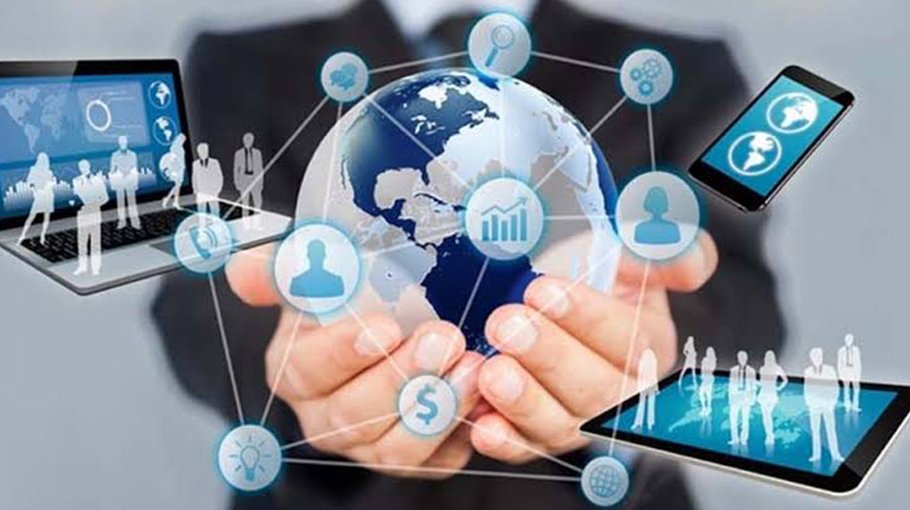ICT for sustainable development

The usage of information technology has significantly increased in sectors including education, health, agriculture, trade, and others over the past 52 years in Bangladesh. Internet services, mobile money transfers, buying airline tickets, and e-tendering at the district and union levels all fall under this category. Needless to say, digital economy of Bangladesh is reaping the benefit of widespread usage of technology.
Smart Bangladesh: A visionary decision
Prime Minister Sheikh Hasina earlier declared that Bangladesh would be a Smart country by 2041. As many developing countries have made significant strides toward becoming smart nations and the developed world has already undergone this transformation, the plan for Smart Bangladesh, which comes after Digital Bangladesh, is an important and long-term decision for this country. Bangladesh needs to maintain close relation with the developed world if it wants to keep making progress. The countries that implement technology successfully will be in a stronger position in terms of commerce, international transactions, and communication in the future.
Accomplishments in ICT sector
The country's remarkable technologicalprogress is evident everywhere. A number of noteworthy achievements, notably the launch of Bangladesh's first satellite into orbit, have improved Bangladesh's standing in the eyes of the global community. A number of government initiatives have been launched in the last year with the goal of removing obstacles to ICT adoption and expansion. One of them, the launch of "Binimoy," stands out as an Interoperable Digital Transaction Platform (IDTP). Customers, retailers, payment service providers (PSPs), e-wallets, banks, financial institutions, payment system operators, government entities, and private companies can all make payments using it. Jiban Bima Corporation's "E-Insurance System" employs state-of-the-art information technology and offers a number of features. A significant advancement for Digital Bangladesh is the E-Insurance System, which was just introduced a few months ago. Digitization has substantially lessened the hardship of the common citizen and encouraged them to pay their income taxes online. On the occasion of Bangladeshi Prime Minister Sheikh Hasina's last birthday, the country's first interactive gaming platform for children and teenagers, called "Hasina and Friends," was unveiled. It is Bangladesh's first independent learning portal. Sheikh Kamal IT Business Incubator was just recently founded to facilitate the activities of business owners and academics.
This incubator will help Bangladesh increase its opportunities in the international information technology sector, encourage the development of successful entrepreneurs in the nation's information technology sector, support research and innovation activities at the university level, and, most importantly, assist the sector in generating the anticipated level of revenue. For Metro Rail travel, however, customers may instantly get their e-cards from vending machines.
Edtech is becoming more promising in Bangladesh
For edtech in Bangladesh, this year may be characterized as promising. Currently, the nation is home to more than 100 edtech firms. The most difficult issue for edtech users was access to the internet in remote locations. Some firms are, however, making substantial efforts this year to expand their programs across the nation. The Ten Minute School founder and a few other instructors have joined the Chalan Beel Education festival at Singra in Natore, North Bengal. The GPA-5 award ceremony is being held across the nation with the help of "Sikho," a digital education platform. IT training centers have also aggressively entered the market to expand their operations. However, digital connection is a key factor in determining how well edtech works in Bangladesh.
Digital Connectivity
The term "5G" refers to the communication superhighway of the fifth industrial revolution. As we move towards the 5-G age and get closer to the launch of the Digital Bangladesh initiative, we are constructing the highway of digital connection. All government connectivity, including government hospitals and other offices, has already been made feasible, and all economic zones have been connected to 5G. The country currently has 13 crore internet users, who consume 3840 Gigabits per second of bandwidth. Internet service is not yet accessible at the marginal level, despite the government's attempt to provide fiber optic cable. The nation may need more than 6000 Gbps of international bandwidth by 2025.
ICT for employment
Although the number of human resources in the IT sector is increasing in the country, they are not being developed to be suitable for the industry. These new-age jobs require a high level of technical skills. Young people are most suitable for future jobs like data scientists, IoT experts, and robotics engineers. Industry-related skills and knowledge, along with an internship, co-opt, and education at the tertiary level, will make youth employable. In the country, approximately six lakh people work as freelancers. Numerous IT entrepreneurs are active nowadays and contribute significantly to the economy. If financial institutions partner with the government in projects involving the freelancing outsourcing of the country's unemployed, Bangladesh will become unstoppable.
Building a “Smart Bangladesh" entails creating a culture, economy, and government where Bangladesh will be recognized as an innovative and knowledge-based country. The idea of Smart Bangladesh is to create a society that is knowledge-based. ICT is essential for the advancement of this knowledge-based society. We hope Bangladesh will become an e-state with e-governance, e-banking, e-commerce, e-learning, e-agriculture, e-services, and many more in the coming days.
Mr. Moon M. Rajib, is a Branding & Communication
Manager at MetroNet
Bangladesh Limited



